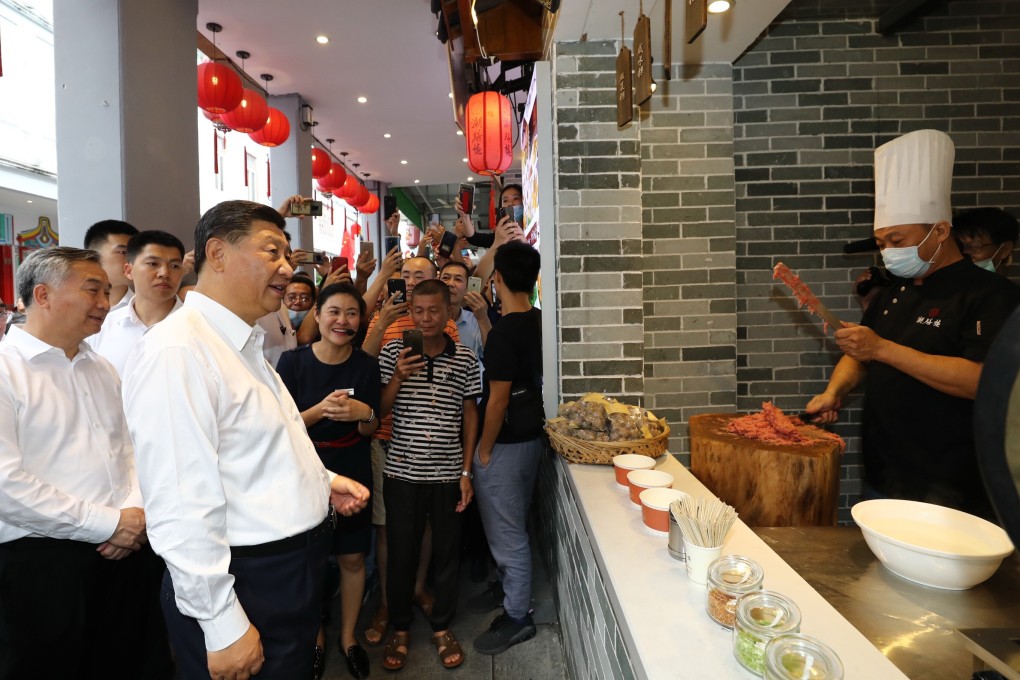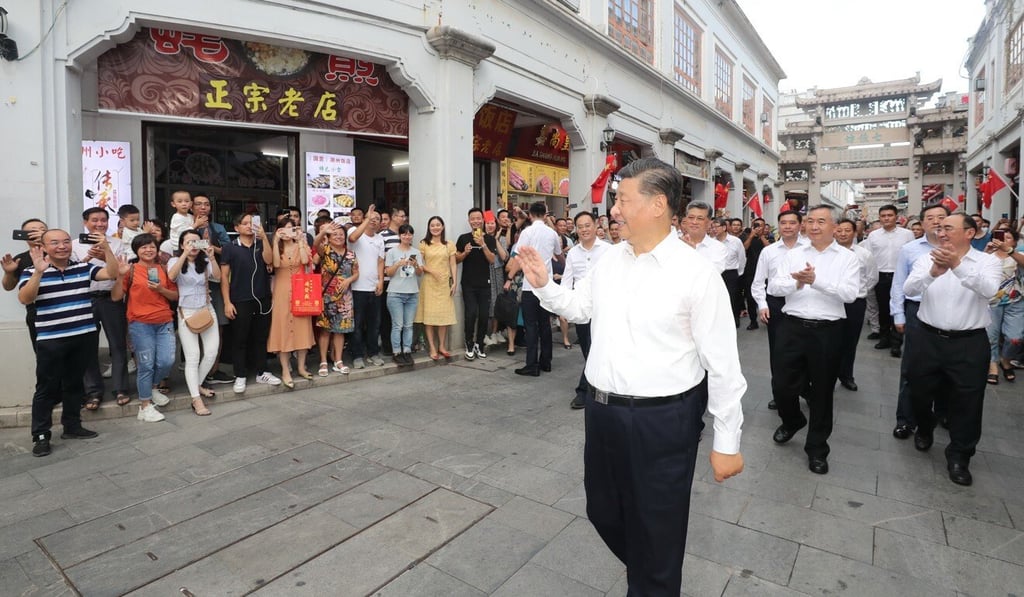Xi Jinping puts culture, heritage at heart of his Chinese dream
- President showcases local arts, crafts and customs on latest trip to the south
- Projecting nation’s past in a positive light is ‘essential to making China great again’, academic says

“The culture of Chaozhou and Shantou is an important part of the Chinese culture,” he said on a visit to the former on Monday.
“Chaozhou’s embroidery and the region’s wood carvings, sculpture, opera, tea and cuisine are precious treasures of the Chinese culture,” he said. “We love this city so we must take good care of it.”
China watchers and analysts say Xi’s interest in China’s cultural heritage is not just a personal matter but also underscores his desire as the nation’s leader to reinforce the concept of the “Chinese dream”.

“From Xi’s perspective, the Chinese dream and traditional culture are two sides of the same coin,” said Chen Daoyin, a political commentator and former professor at the Shanghai University of Political Science and Law.